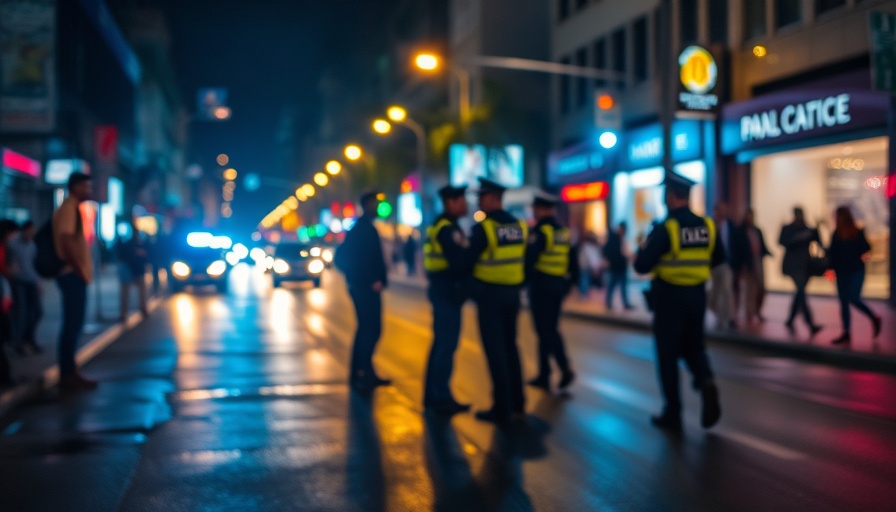
Understanding the Gravity of Domestic Violence: A Case Study
The recent sentencing of Yessenia Sanchez, a former Miami-Dade Schools police officer, underscores a pervasive issue in our society: the lethal potential of domestic violence. Caught on video shooting her ex-boyfriend, Miami-Dade sheriff's deputy Damian Colón, Sanchez was sentenced to 30 years in prison, bringing to light the intersection of law enforcement roles and personal violence. This tragic event serves as a grim reminder that the consequences of domestic violence extend far beyond the immediate victims.
The Role of Surveillance Technology in Modern Justice
In the era of heightened accountability, video evidence played a pivotal role in securing Sanchez's conviction. Surveillance cameras captured the moment she shot Colón after tracking him to his home, demonstrating how technological advancements can be leveraged in law enforcement. Despite the shocking nature of the events, this incident also reflects the potential for technology to reveal truths that might otherwise go unnoticed in the opaque world of domestic abuse.
Implications for Police Procedures and Accountability
Sanchez’s background as a police officer raises significant questions about training and mental health support across law enforcement agencies. The fact that she had previously resigned due to domestic violence charges illuminates a gap in police protocols that often fails to address red flags among officers. Law enforcement agencies need to implement rigorous self-screening and supportive resources to ensure officers are psychologically fit for duty, as Sanchez’s case further illustrates the complexities of officer wellness and accountability.
The Community Response and Reflection on Law Enforcement Culture
This case has sparked discussions regarding the broader implications within police culture and accountability. With both victims and perpetrators potentially coming from law enforcement backgrounds, the community must address how domestic violence is perceived and managed within these circles. Activists are calling for comprehensive reform that includes transparent investigations of police misconduct, improved domestic violence training, and a strong advocacy for victims’ rights.
Justice and Recovery: The Path Forward
In her statement following the sentencing, State Attorney Katherine Fernandez Rundle highlighted that Sanchez’s sentence, while significant, cannot erase the lasting scars inflicted upon Colón and his family. The judicial system’s response in this case serves as a critical step toward justice, yet it also calls for a more robust support mechanism for victims of domestic violence, irrespective of the perpetrator’s identity. Awareness campaigns and educational initiatives are vital in fostering dialogue and urging communities to confront this pervasive issue jointly.
In conclusion, the difficult journey toward healing for both Colón and other victims of domestic violence not only relies on justice served through the courts but also on societal willingness to address and reform the systems that enable such violence. As police departments and policymakers reflect on cases like Sanchez’s, they must prioritize community relations, officer welfare, and the necessity of critical thinking to combat the insidious nature of domestic violence.
Overall, Sanchez's conviction should serve as a call to action, prompting law enforcement and the community to reconsider their roles in preventing domestic violence and protecting the vulnerable.
 Add Row
Add Row  Add
Add 

 Add Element
Add Element 




Write A Comment